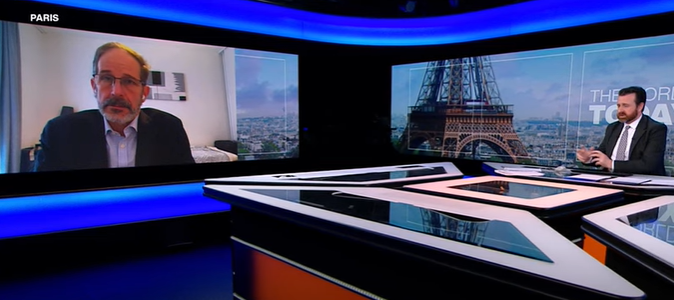
Earlier today, the IIIM Head Robert Petit spoke to France 24 about the IIIM response to the new justice opportunities in Syria. When asked about the impact of the regime fall on IIIM’s work, Robert Petit, said “it has potentially opened up a source of evidence against the regime and its allies that was here to fore not available. It has led to hope that accountability for crimes committed in Syria since March 2011 is now within reach”.
Watch the full interview with France 24 here: We have the case files, we have the evidence’: Head of UN Mechanism on Syria war crimes – Perspective

Head of Syria Accountability Mechanism Wraps Landmark Visit to Syria…
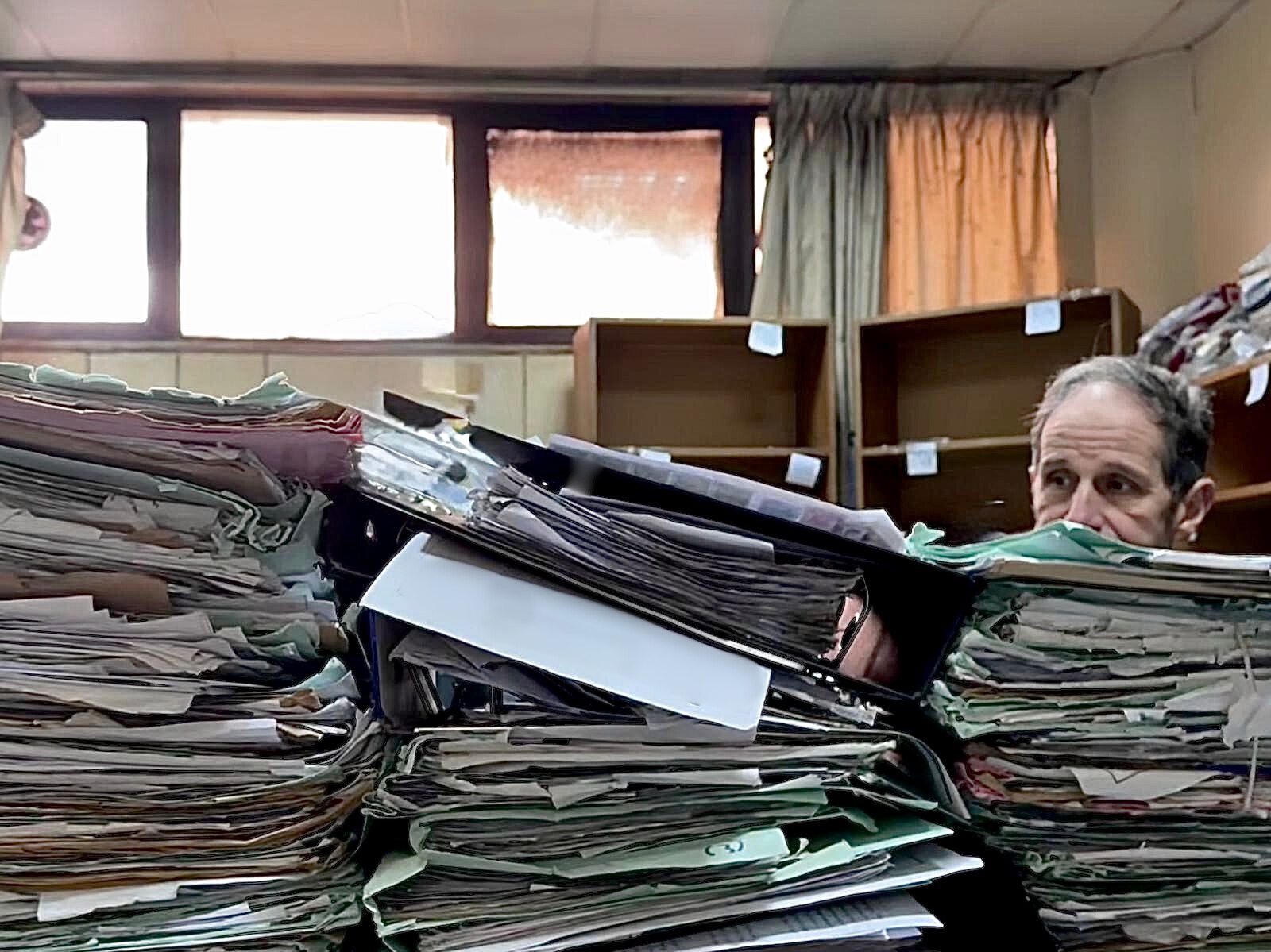

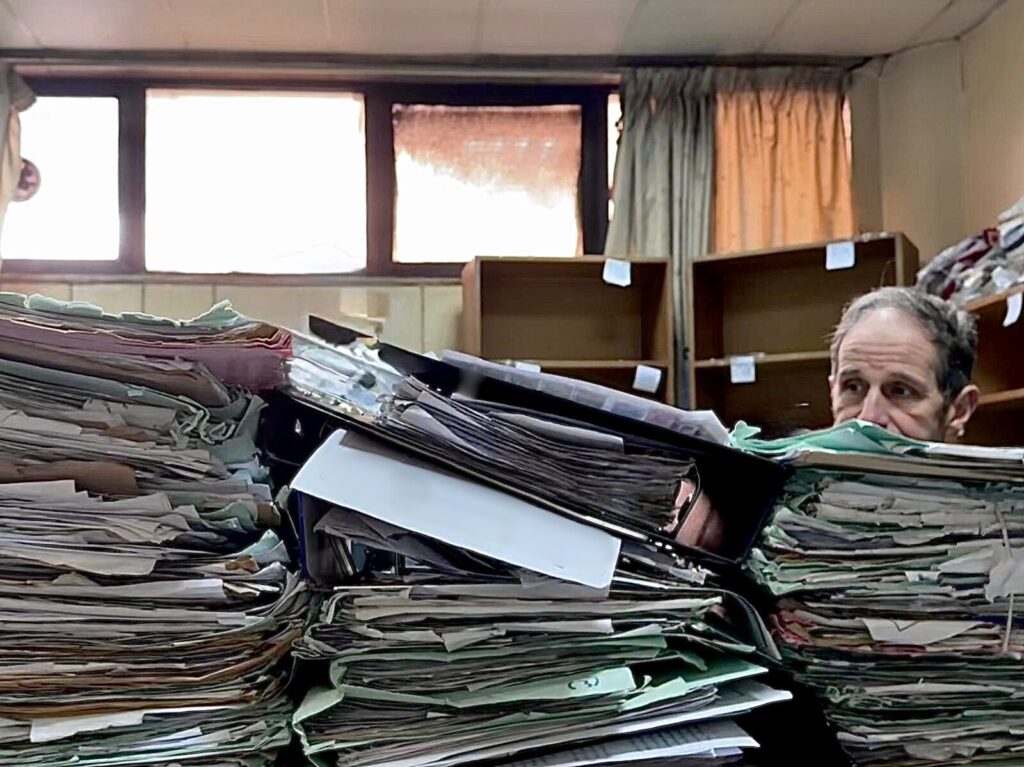
Head of Syria Accountability Mechanism Wraps Landmark Visit to Syria, Calls for International Coordination to Protect Evidence.
Damascus, Syria, 22 December – Robert Petit, the Head of the International, Impartial, and Independent Mechanism for Syria (IIIM), has concluded a historic visit to Damascus, Syria. Coming after the agreement of Syria’s caretaker authorities, it is the first time the IIIM is authorized to enter Syria and can discuss justice and accountability with Syrian officials. A significant milestone, coinciding with the exact date of the Mechanism’s creation eight years ago in 2016.
Mr. Petit’s trip is a critical step in advancing the IIIM’s efforts to preserve the evidence of international crimes committed in Syria and to ensure accountability for those responsible.
“Our ongoing work is to safeguard evidence and support justice processes for the countless victims impacted over the past 14 years,” said Mr. Petit. “The fall of the Assad rule is a significant opportunity for us to fulfill our mandate on the ground.”
After meeting with representatives of the caretaker authorities, the IIIM Head accessed a site of significant interest. “Even at one facility, the mountains of government documentation reveal the chilling efficiency of systemizing the regime’s atrocity crimes,” Mr. Petit remarked.
Mr. Petit highlighted the urgency of preserving the evidence before it is lost forever.
“Time is running out,” he stated. “There is a small window of opportunity to secure these sites and the material they hold. Each day we fail to do so, we risk losing the chance for comprehensive accountability.”
During his visit, Mr. Petit met with a number of Syrians impacted by the crimes committed during the past decade, including those who have recently returned to the country after years of exile. Their testimonies underscored a widespread demand for truth, justice and inclusion.
“Meeting with those who have suffered loss and exile was another sobering reminder of the human cost of this conflict,” said Mr. Petit. “They are asking: Where is the international community? They demand accountability. They want answers about their loved ones, and justice for the crimes committed against them.”
“I was deeply moved by the resilience of the Syrians I met in Damascus, who endured years of unfathomable inhumanity. Men and women from all walks of life are demanding that their voices be heard and that the truth of what they have experienced is brought to light. This is something we are fully committed to at the IIIM, ensuring that our work in support to jurisdictions is centered on Syrian victims and survivors.”
Mr. Petit further emphasized that achieving accountability will require cooperation and coordination among a wide range of actors.
“No single entity can address this challenge on its own,” Mr. Petit noted. “It will take a collective and concerted effort. Syrians, civil society organizations, and international partners leveraging their complementary mandates. As a priority all of us must work to preserve evidence of the crimes committed, avoid duplication, and ensure that all victims are inclusively represented in the pursuit of justice.” He added, “The IIIM was specifically created to assist this effort and is ready to play its part in full. The time to act is now.”
About the IIIM
The International, Impartial and Independent Mechanism (IIIM) is a United Nations organisation, established in 2016 by the UN General Assembly in a landmark vote. It is mandated to assist in the investigation and prosecution of individuals responsible for committing the most serious international crimes (including war crimes, crimes against humanity, and genocide) in Syria since March 2011.
The IIIM works to collect and preserve evidence from multiple sources to support current and potential future accountability proceedings. A significant number of its sources and information providers are Syrian civil society actors.
The IIIM’s work can be used by jurisdictions with the legal authority to prosecute international crimes, thereby supporting accountability for atrocities committed during the Syrian conflict.
It shares information, evidence and analytical products either in response to requests for assistance or proactively with competent jurisdictions.
It integrates a victim survivor centred approach and proactive strategies on gender and children/youth throughout its work, holding regular consultations and engagements with Syrian civil society and victim/survivor communities.
It is not a court or tribunal; it cannot issue indictments or conduct trials and does not have prosecutorial powers.
The IIIM is:
- Independent: Works without external instructions or influences. It does not share details of the justice processes it supports publicly except as authorised by competent jurisdictions.
- Impartial: Works to cover all international crimes committed by all parties in the conflict, no matter the affiliation, without bias.
- Rigorous: Applies international criminal law methodologies throughout all tracks of its work.
Since the start of its operations the IIIM maintained its efforts to initiate cooperation from the Syrian Arab Republic, in line with its commitment to impartial and inclusive justice. Its calls went unanswered until December 2024, when it was invited to access Syria for the first time. 48 hours later the IIIM Head led a small delegation to Damascus.
Press Briefing: Head of the IIIM – Opportunities and challenges for justice in Syria
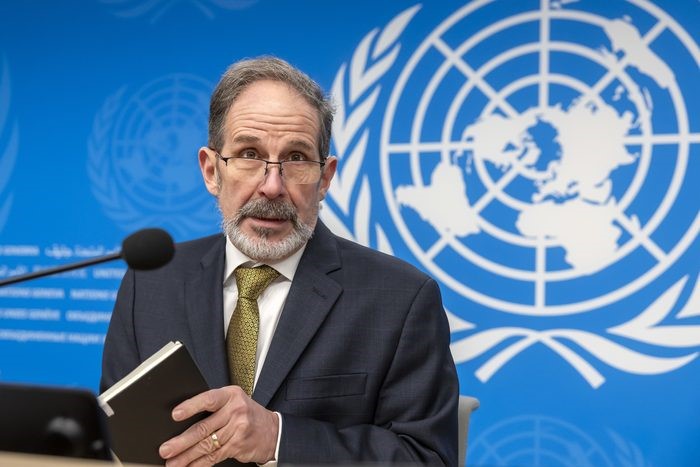

Geneva, 17 December 2024 – In a recent UN Briefing, Robert Petit, IIIM Head, highlighted the opportunities and challenges presented by the fall of the Assad rule. The IIIM, previously unable to access Syria, has now requested cooperation to enter the country as soon as possible.
The IIIM is prioritizing urgent investigations, leveraging existing networks and Syrian sources, and coordinating with international partners like COI Syria, IIMP, and OPCW. IIIM’s expertise in collecting and preserving evidence supports Syrian-led efforts to protect material for present and future justice efforts.
Mr. Petit emphasized the critical need to preserve evidence amidst rapidly developing and challenging context and engage with caretaker authorities. He noted the IIIM’s extensive documentation efforts, partnerships with Syrian civil society and international actors, and support for global jurisdictions in pursuing accountability.
https://webtv.un.org/en/asset/k18/k18ukqs934

© Keystone/Salvatore Di Nolfi
‘There needs to be accountability’ – UN official
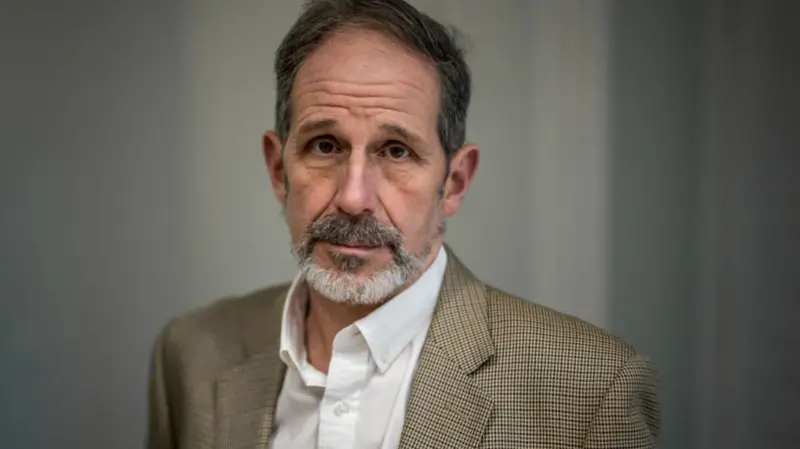

Robert Petit, Head of the IIIM, spoke to BBC Newsnight on 10 December, on the new opportunities for justice following the fall of the Assad regime.
Petit said: “There needs to be accountability, certainly for those most responsible for the architects of these crimes. And when it comes to lower level perpetrators, then various means of justice and accountability can take place.”
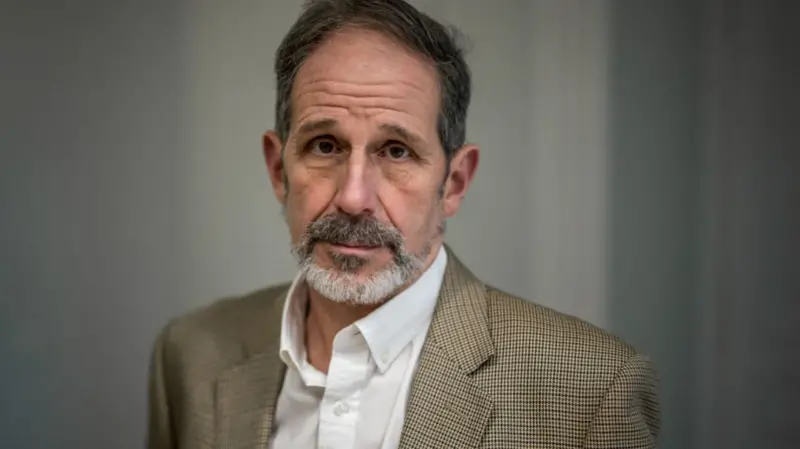
Read the full article here.
IIIM Releases Analysis of Widespread Torture in Syria’s Detention System


Geneva, 6 December 2024 – The International, Impartial and Independent Mechanism (IIIM) today released a detailed report analysing the widespread and systematic commission of torture, ill treatment and related violations across more than 100 Government detention facilities in Syria. This includes analysis of inhumane detention conditions, sexual violence and enforced disappearances.
Titled “The Syrian Government Detention System as a Tool of Violent Repression”, the report draws on over 300 witness interviews, medical forensic evidence and the Syrian Government’s own documentation. Focusing on factual patterns and their systematic nature, consistent accounts of abuse emerge from the accounts of victims and survivors detained in Government facilities across Syria.
Robert Petit, Head of the IIIM, emphasized the significance of the report:
“Our report lays bare the harrowing reality within the Syrian Government detention system. The interview records of former detainees, corroborated by forensic medical evidence and an extensive body of other evidence, reveal the severity of the mental and physical harm that was intentionally inflicted.” On releasing this analysis, Mr. Petit said, “We are making the Detention Report public and widely available, to contribute to ongoing justice and accountability efforts, not only for past abuses but also those that continue to this day.”
Patterns in the Body of Evidence
Former detainees described severe physical and psychological abuse, including beatings, stress positions, and sexual violence. They reported horrific conditions, lack of hygiene, insufficient food and water, overcrowding, and denial of medical care. Many witnessed other detainees being tortured and killed.
The report includes descriptions of Syrian Government structures involved in the infliction of harms, including Government leadership and coordinating entities, intelligence branches, military hospitals and military police.
Impact on Families
The Detention Report also sheds light on the devastating impact on the families of disappeared detainees. The anguish and distress have caused long-term consequences for whole communities.
“Thousands of families bear the psychological toll of not knowing where their loved ones are,” Mr. Petit said. Speaking of the role of the Government, he added “This is unimaginable psychological torture, yet the Syrian Government continues to intentionally withhold and cover-up information that could address the agonising uncertainty.”
In accordance with witness protection considerations and consent limitations, the Detention Report has been released in redacted format. It is accompanied by supporting resources including an interactive map of approximately 100 detention facilities identified by witnesses, and an FAQ.
To view the report and other resources please go to the IIIM’s website https://iiim.un.org/
For more information, please contact: [email protected]
About the IIIM
The International, Impartial and Independent Mechanism (IIIM) is a United Nations organisation, established in 2016 by the UN General Assembly in a landmark vote. It is mandated to assist in the investigation and prosecution of individuals responsible for committing the most serious international crimes (including war crimes, crimes against humanity, and genocide) in Syria since March 2011.
The IIIM works to collect and preserve evidence from multiple sources to support current and potential future accountability proceedings. A significant number of its sources and information providers are Syrian civil society actors. The Detention Report relies on information and evidence from the IIIM’s Structural Investigation and includes evidence from multiple sources, including Syrian Government documents, CSO evidence collections, CSO reports, the IIIM’s witness interviews and direct evidence collection, the Caesar Files, medical forensic reports, national court proceedings, and reports of UN bodies and their communications with the Syrian Government.
The IIIM’s work can be used by jurisdictions with the legal authority to prosecute international crimes, thereby supporting accountability for atrocities committed during the Syrian conflict.
It shares information, evidence and analytical products either in response to requests for assistance or proactively with competent jurisdictions.
It integrates a victim survivor centred approach and proactive strategies on gender and children/youth throughout its work, holding regular consultations and engagements with Syrian civil society and victim/survivor communities.
It is not a court or tribunal; it cannot issue indictments or conduct trials and does not have prosecutorial powers.
The IIIM is:
- Independent: Works without external instructions or influences. It does not share details of the justice processes it supports publicly except as authorised by competent jurisdictions.
- Impartial: Works to cover all international crimes committed by all parties in the conflict, no matter the affiliation, without bias.
- Rigorous: Applies international criminal law methodologies throughout all tracks of its work.
Since the start of its operations the IIIM has maintained its efforts to initiate cooperation from the Syrian Arab Republic, in line with its commitment to impartial and inclusive justice. Although it has not yet received any response, it will continue to reach out to all States who may hold information and evidence relevant to its mandate.
-ENDS-
IIIM Statement on Developments in Syria


Geneva, 03 December 2024 – The IIIM is closely monitoring the recent developments in Syria and is deeply concerned about the escalation and its impact on the local community. Rules of war are enshrined in international law, those who break them will be held accountable, and every avenue of justice will be seized.
Any information and evidence of violations of international humanitarian and human rights law falls within the scope of our mandate. The IIIM continues to support current and future investigations and prosecutions of such crimes committed in Syria. It does this without bias, either for or against any group or individual, and regardless of the affiliation or position of suspected perpetrators.
IIIM-Syria Welcomes Dabbagh Case Verdict


Geneva, 27 May 2024 – The International, Impartial and Independent Mechanism – Syria (IIIM) welcomes the verdict by the Paris Judicial Court which has found three high-ranking Syrian officials guilty of complicity in crimes against humanity and war crimes committed against two French Syrian nationals, Mazen Dabbagh and his son Patrick Dabbagh.
Ali Mamlouk, Jamil Hassan and Abdel Salam Mahmoud were sentenced, in absentia, to life imprisonment for complicity in imprisonment, torture, enforced disappearance and murder constituting crimes against humanity, as well as for confiscation of property, qualified as war crime. The lawsuit was filed in 2016 by the relatives of the victims, the International Federation for Human Rights (FIDH) and the Ligue des droits de l’Homme (LDH), with the support of the Syrian Centre for Media and Freedom of Expression (SCM).
IIIM Head, Robert Petit, said “This landmark case sends an important signal that even the highest levels of power, perpetrators can be held accountable”. Mr. Petit added, “This case was possible due to the tireless efforts of Syrian victims and survivors over many years. This verdict is a sign that the pursuit of inclusive justice is not in vain”.
The IIIM supported the investigation by providing information, evidence and analytical products. During the trial former IIIM Head, Catherine Marchi-Uhel, gave testimony in court as a context witness.
“The different types of assistance the IIIM was able to provide for this particular case is an example of the expertise we can offer to jurisdictions who are holding perpetrators accountable”, Mr. Petit said. “It is another example of how CSOs, jurisdictions and accountability bodies like the IIIM working together can deliver justice and accountability”.
Established in 2016 in a historic resolution by the UN General Assembly, the IIIM has a mandate to assist in the investigation and prosecution of persons responsible for the most serious crimes under international law committed in the Syrian Arab Republic since March 2011.
To date, the IIIM has received 375 requests for assistance, related to 275 distinct investigations across 16 jurisdictions. It collects information from a range of stakeholders, with the majority of its sources being Syrian civil society actors. It consolidates and preserves the data, preparing and sharing on request, and proactively, information, evidence and analysis.
